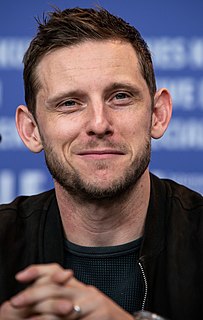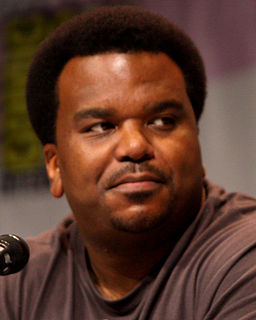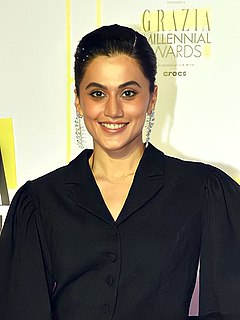A Quote by Christopher Lloyd
Every role I get is always a challenge. I can read a script and say, 'Oh, I can do that!' and then when I start working on it, I suddenly realize that I had no idea what I was getting into. Then I have to really work hard!
Related Quotes
I had to audition for Fandango. When I read the script, the role that was interesting - so everyone thought - was the role that Costner played. He was the cool guy. And I read the script, and my representation at the time said, "That's the role you should read for." And I was like, "Really? How about I read for this other role." And they went, "Well, you're not going to get that role."
Curiously, the balance seems to come when writing is woven into every aspect of my life, like eating or exercising - one flows constantly into the next: I'll wake up and have coffee, read the news, then write a letter or two (always in longhand), then go teach, and after teaching write a bit in a journal - dreams, what I had for breakfast and lunch and why I had it, what's on the iPod, sexual habits, etc. - then read a bit, then work on a real bit of writing...you get the idea.
I had a very hard-working father and a very hard-working mother. My dad was someone that would get up at 5 in the morning and work 'til 4 in the afternoon and then had a hobby he made money with. After he'd get home, he'd have a meal and have a drink and then flow right into that, trying to provide.
I get a singular comment that's very revealing: "I didn't know what to expect." Every time I hear that I think it's really just code for, "I wasn't sure I'd be comfortable with you in this role," which I understand coming from Oscar Bluth and Hank Kingsley and whatever. But I think there's a degree of, "Oh, okay, this is how it is." Then almost always people tell me that they love it and then people start talking to me about their families, whether it's transgender issues or not.
Whenever I've gone against my instincts, it's been a bit of a disaster. If there's a script I'm considering, I will get everyone to read it. I will get my mom to read it, I will get my friends to read it, I'll get the person doing my manicure to read it. I'm someone who really needs to talk things through. And then, obviously, I have a wonderful manager and agents, and I listen very carefully to what they have to say as well.
Every movie goes through that U-shape where you start with 'Oh that's a great idea. I love it.' Everything's possible and then you face 'Oh, we can't do that, and that's impossible, and that's a bad choice.' You go the practicality of it. And then you come up to 'Great.' But that middle part is when you don't have results yet.
I end up improvising in almost everything to some degree, 'cause it's often necessary on movies. The script is one thing, and it's this kind of theory of what you're going to do, and then you get there on the day and you realize, "Oh, the script is not appropriate to this room, the door's over here."
Young screenwriters are always very frustrated when they talk to me. They say, 'How do we get to be a screenwriter?' I say, 'You know what you do? I'll tell you the secret, it's easy: Read 'Hamlet.' You know? Then read it again, and read it again, and read it until you understand it. Read 'King Lear,' and then read 'Othello.'
A typical workday for me is getting up at about 5:00, 5:15 in the morning, getting some coffee or tea as quickly as possible, and then getting to my desk. And ideally, I'll start writing around 5:30, 5:45, and I'll write for three, four hours, and then I'll take a break, and read over what I write. Maybe about lunchtime, I'll go exercise or get out into the day. Then I'll either read over what I wrote the day before and quit work around 3:00 or 4:00 in the afternoon and spend some time with my kids.
It wasn't exactly a cattle call. I had an agent, and they were seeing people for the parts, so my agent said, "Here's the script, see if there's anything that speaks to you." And I did, and I called my agent and said, "I think this character Data is kind of interesting," and she said, "Well, okay, I'll get you the appointment with Junie Lowry." I had to read with the casting agent first, 'cause nobody really knew me then. Then after that, I had, I think, six different auditions for the role. And finally it was me [on Star Trek].
The creation of a film starts with an idea, a notion of a time period or characters, and you get really excited about the idea, and sell it to others if you need their support to write the script. You can't wait to get started, and then you try to start, and you struggle with the blank page, and you get some ideas, and they're bad ideas, and you write bad stuff. It's really bad.




































